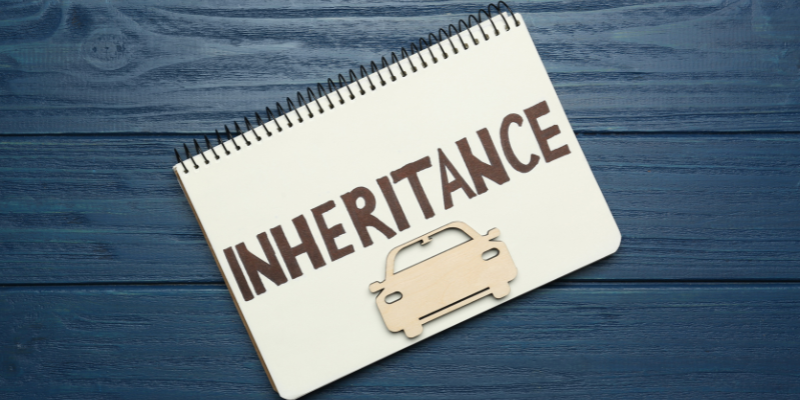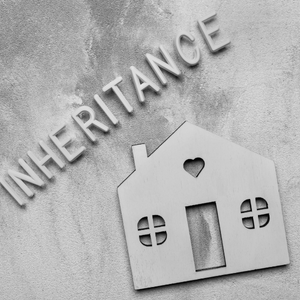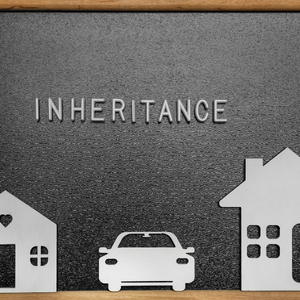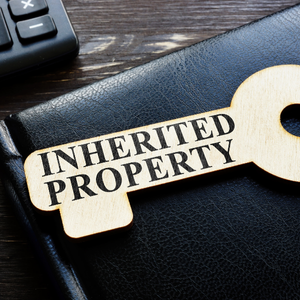
Receiving property as an inheritance comes packed with affirmative mixed feelings, which makes it more complicated. It comes with its own emotional value, yet at the same time, it poses several legal as well as financial complications. Selling, moving, or even renting possesses its own poses. Therefore, it becomes essential to evaluate your responsibilities and the available options at hand, which you can utilize to your advantage. The following document by Nance Homebuyer aims to cover the most important aspects of dealing with a legal heir’s property. It will cover important practical issues and legal issues, as well as the associated taxation, to assist the individual in protecting their interest while acquiring as much value as possible from the property.
Key Highlights
- Georgia inheritance laws and probate process determine how inherited property is transferred, impacting heirs’ decisions and rights.
- Accurately evaluating a property’s condition and value is essential for strategic decisions, whether selling, keeping, or renting the home.
- Capital gains tax on inherited Georgia property is minimized by the stepped-up basis, calculated on the date-of-death market value.
- Clear title transfer, debt resolution, and documentation are vital steps before selling or managing inherited Georgian real estate.
- Checklists and professional support streamline legal, tax, and property management tasks for new Georgia property owners.
Understanding Georgia Inheritance Laws: An Essential Overview

Georgia’s laws of inheritance play a vital part in determining how estates through real estate and real property assets are owned and transferred after the demise of the owner of such property. Specifically, in the case you have recently come across an inherited house through some will or, in some cases, you are also an heir by default, these go through a highly sophisticated legal process that regulates everything from probate to estate taxation. Understanding these laws assists the heirs in making sound decisions to maximize the value of the property, limit tax exposures, and effectively manage the estate probate process. This summary explains the important difference between intestate and testate succession in Georgia law. This emphasizes the fundamental elements all buyers and heirs need to understand in dealing with an inherited house and property or other such assets.
Differences Between Intestate and Testate Succession in Georgia
The division of intestate and testate is crucial in Georgia when it comes to managing inherited real estate, like a house, property, or any estate asset. Valued for their functional and strategic potential, property succession laws determine the ownership of the property and under what circumstances it is claimed, shaping the probate process and influencing heirs’ choice to retain or divest the inherited real estate. In the testate succession scenario, the decedent would have excluded primary probate assets from the estate. The will provides for specific beneficiaries and delineates asset distribution. The probate court of the relevant jurisdiction and the named executor in the will usually process the will. The court administers the process to ensure that the will is fulfilled. This approach customarily assists in reducing administration conflicts and facilitates multi-party asset distribution to heirs since there are relatively fewer unresolved issues from the decedent’s estate.
In direct contrast is intestate succession, which is the case when a valid will has not been executed by the decedent. In such cases, state laws are applied to determine the manner in which the decedent’s estate shall be distributed. In such cases, the probate court appoints an administrator to carry out the tasks of either funding estate taxes or ensuring that the estate is liquidated in compliance with the state law, which in this case is Georgia. In most cases, a spouse with children is said to be the first to inherit. In the absence of either, more distantly related family members inherit. Relatives who inherit and do not fulfill the surplus funds requirement either sell the property or, in most cases, never actually pay the set taxes and thus remain liable or obtain funds. Under such terms, payment can only be received in the absence of property. Multiple claimant scenarios tend to be more complex and difficult to ascertain. If you’re facing this situation and need a fast solution, you can sell your home for cash in Atlanta or nearby cities. This allows you to settle obligations quickly, avoid delays, and move forward with confidence.
You will have to deal with logic that includes both testate and intestate branching succession scenarios. Geos Estate will have to navigate through the title transfers and the IRS, and through the IRS – Geos Estate will be subject to a capital gains tax if the property is sold, and if the inherited property is retained and sold, then the person who is selling the estate will be subject to the capital gains tax. As with all other states, Georgia will not have a state-level estate tax, and the property will be subject to a Federal estate tax if the estate is considered to be larger than a threshold amount. All buyers will have to ensure that the property has gone through probate and the title is clear before buying it. All heirs will need to consult with estate lawyers, tax strategists, real estate specialists, or some combination of each to avoid common and costly mistakes and to have a strong bottom line. In the end, the Texas estate laws will allow Georgia heirs to have a strong border and protect the estate by preemptively reducing the amount of complicated matters that can be dealt with to gain the best outcome.
Navigating the Probate Process in Georgia
Properly managing an inherited property requires one to understand probate, as conducting it in Georgia can easily lead to mistakes, and follow the requirements put in place to maintain the estate’s worth. Georgia probate law states that each necessary step centers around the filing of probate documents and attending to estate obligations like debts and taxes. Resting within the Georgia estate law, the executor is under strict obligations to fulfill the needs of the probate court within the assigned timeframe, and Georgia estate law’s obligations while observing the disbursement of legal shares each heir is entitled to. These subclasses of legal shares, which may be included in property, are independent of the will.
Georgia estate law raises questions that concern the time an estate may take to finally rest in peace, whether it is burdened with federal estate taxes, and the probable gains through the estate. Comprehending the estate probate process will not confuse the inheritors regarding options they can take with the received estate, like keeping it, handing it over freely, or selling or canceling it in the market. Thus, rational and timely action from all heirs will maintain the peace of mind as well as the value of the estate for it.
Typical Steps and Timeframes for Settling an Estate
Inheritors of houses and other real estate properties in Georgia need to go through a deliberate and orderly process of probate, which is dictated by state law and county custom. This process is initiated by filing a petition for probate in which a named executor (in case of a will) or a court-appointed administrator (in case there is no will) exercises control over the process. After acceptance of the petition, the heirs, beneficiaries, and creditors are given formal notice, and, in case there is a will, the court is bound to the will for the purpose of validating it. This process is very simple in uncontested cases, but it may take a long time to resolve disputes. At this point in time, the executor or administrator is empowered to protect the estate, fulfill the obligations, and manage the transferred properties, which may include the full title of the property, property value, estate tax, and other related assets.
The next step is to complete and submit the inventory forms, evaluate the assets, and analyze the taxes. Although Georgia does not impose any state estate tax, the federal estate tax applies to extremely large estates, and planning for sales needs to be accurate. At the same time, unpaid debts and mortgages, liens, and claims from creditors must be settled before the successors have any rights to the property. If the estate does not have sufficient liquid assets, the heir’s property can be sold to pay for the obligations, and the proceeds will be available after the obligations have been settled. The timelines for probate vary. Estates straightforward in nature, with clear-cut wills, are settled in under six months, while more complex estates with disputes, taxes, and multiple assets can take over a year to settle.
After taxes and debts are settled, the executor allocates the remaining assets, changing titles and tax certificates, and ensuring the heirs are added as the new deed holders. The absence of a clear title can be a problem for heirs. They are required by buyers and lenders to furnish proof of ownership. Family collaboration helps reduce delays, and Georgia attorneys, accountants, or realtors enhance compliance and productivity. All in all, heirs and creditors are protected by Georgia probate to safeguard the probate estate. Knowing each phase—submission, publication, verification, and resolution—allows heirs to manage the contested estate more effectively and minimize complications in deciding to retain or liquidate assets, especially a property in Georgia.
Key Considerations for Inherited Property in Georgia

An heir’s property stemming originally from the State of Georgia is not exclusively obtained through “filling the legal forms.” It comprises balancing various aspects, including the financial aspect, along with an emotional and practical side, which would also tackle the given obligations beforehand. The Local Definitional Standards, along with having to assess the property concerning Market Appropriation, and the possibility of Liens and interest encumbrances on the property. An unfathomable property would be one that makes the next steps easier, such as selling, retaining, or transferring the ownership among the population who are entitled to the inheritance as well.
Strata across which the property is divided still need to be derived concerning succession rights, resolving unsettled bonds along the way, and preparing for future interactions with a probable buyer. Before they can realize and enjoy the true value of the estate, the mortgage, tax, and obligation to a creditor need to be taken care of. It is in the best interest of the Heirs to formulate a more value-enhancing property, efficient propogationship, ensuring the estate is orderly managed in terms of the law which governs the state.
Evaluating the Condition and Value of Property
Inheritors of property in Georgia know that the value evaluation stage within the succession timeline is the most important one. The outcome of each prospective decision that follows concerning the inherited house, home, or property rests on decision evaluation for ‘keeping it, leasing it, or selling it.’ Heirs can evaluate prospective ownership of the property through selling, renting, or keeping it. Heirs can also lose prospective ownership through selling, renting, or keeping it. Property retrieval for the heirs at the first stage is deemed crucial, while professional assessment evaluations contribute further to the credibility of the heirs. More importantly, the maintenance, compliance, and structural issues of the property rely on property assessment. In more rural areas, protection of the wells, as well as the septic systems, is central and can impact the resale value tremendously.
Considerable concern ought to be placed on the unraveling of legal or dignitary obligations associated with ownership of the property. Documentation of unpaid utilities, pending taxes, or liens and hidden mortgage paperwork ought to be emphasized, as these issues are the first to be resolved in case there is a need to sell or transfer ownership. Boundary shifting is achieved faster with the help of estate lawyers or real estate agents regarding public records and claims to ownership rights. An appraisal ought to be indirect so that it can ease the burden of equal division to multiple heirs and reporting to the IRS. Appraisal also serves as a sale price marker. Local knowledge is important in appraisal because Georgia’s counties are known to differ in speed, with the urban ones going faster than rural ones.
In addition to the former, the heirs also have to deal with emotional, financial, and other practical issues. While the objective assessments can help resolve the conflict among the multiple heirs, the emotional value placed upon the family estate must be weighed against the practical aspects. Often, the heirs have to sell the home and other properties within the estate to cash buyers or investors who buy properties in any condition for quick and easy cash, even if that means liquidating the estate for less than its worth. Normally, setting out on this strategy entails the loss of maximum profit, as “faster and easier” is the guiding principle. Regardless of the chosen course of action, proper, clear assessments done in advance help in preventing undervaluation, probate, or the sale of the estate. In the end, proper and thorough assessments are a legal requirement of Georgia and the estate being evaluated.
What You Need to Know About Capital Gains and Georgia Inheritance
Inheriting a house in Georgia comes with more substantial implications than the acquisition of a new house—it also involves handling the tax debts that come with inherited lands and properties. These include the capital gains tax when the house is sold, property taxes, and the more estate a house has, the more vulnerable it is to estate taxes. Each heir could face these particular taxes and, at the same time, decide not to keep the land, house, or property, leasing it out, selling it, or altogether wait and retain it for future use.
The value and the estate in tax dynamics are needed in order to rationally and accurately secure the estate and its values. There could still be taxes that could be reduced, the whole value must be kept at its current level, or beyond the expectation for capital gains, real estate, and estate value to keep selling documents, and all outstanding must address the tax mechanisms of estate regulations. Georgia and the estate must simultaneously collaborate with estate advocates to plan the inherited Georgia land or property’s value and the capital needed, in order to not face much expense. Any debts that can be faced must be layered underneath the property value because probating must be done in order to bring increased value out of leasing or selling the inherited house and estate. In situations where heirs prefer a quicker resolution, you can sell your home for cash in Decatur or nearby cities, helping to settle obligations and avoid prolonged financial strain.
Tax Implications When Selling Inherited Georgia Property
If you have inherited a property in Georgia, it is equally important to understand what taxes you might have to pay when you decide to sell it. These taxes include, but are not limited to, capital gains tax, property tax, and, in certain cases, a federal estate tax. Georgia does not have its own estate tax, but your approach to the federal regulations and reporting will determine how much you will keep from the sale. Follow the IRS “stepped-up basis”. This resets the property value to the fair market value at the time of the original owner’s death, and it is a crucial rule to understand. In most cases, selling shortly after inheriting would mean your taxable gain is much smaller. For instance, when your parent purchased a home in Georgia decades ago for $50,000, and when you inherited it, it was valued at $350,000, selling the home for $355,000 shortly after would mean you would only have $5,000 in taxable gains, not $305,000.
An executor of an estate will dispose of property or obtain cash by selling an asset. Proper recordkeeping is also critical in administration. For taxation purposes, an estate’s capital gains will be calculated from an estate appraisal on an owner’s property on the date of death. Georgia, like all states, uses the Federal rules on capital gains. You will be required to report the gain in the sale on Federal taxes, as well as Georgia taxes. If the property was owned in common by multiple heirs, each of them will be required to report the gain on sale as well. You will also be required to pay property taxes, as it will be your monetary estate. It is also your duty to pay the outstanding taxes; otherwise, the property will not be sold. A Federal estate tax return is only possible on an estate worth several million dollars. Executors will have to determine if the Federal regulations apply and prepay estate funds over the property, or the sale proceeds, which are withheld for distribution to the heirs.
Having a strategic vision for your holdings will heavily impact your potential tax liability. Liquidating a property quickly often minimizes capital gains liability while clearing debts much quickly. In contrast, renting the property means monthly cash flows, but if appreciated until sold, the owner will not escape the tax liability. Georgia also doesn’t have a state estate tax, so the state’s investor-friendly attitude can also be a plus. Still, maintenance, property tax, and landlord responsibilities, though the property can be managed remotely, will often cover the tax savings. Seamless tax management and estimation, along with minimal excess payment, legal order preservation, and concrete benefits realization from the estate, guarantee a smooth relay with a tax advisor or a real estate agent.
Actionable Tips and Resources for New Property Owners in Georgia

Inheriting a property comes with several challenges. New property owners in Georgia must understand estate obligations, rules, and local real estate laws. Everyone, from heirs to property evaluators to real estate sellers, must understand Georgia’s sophisticated laws to avoid gravely misguided decisions.
In Georgia, step-wise instructions as well as simplified checklists help heirs manage everything from property tax filings and value protective cash sales to real estate customer relations. Legal compliance and value protection are essential in devised property. Tailored guides are intended as protective measures, ensuring that biased decisions do not outweigh compliance.
Checklists for Managing Your Next Steps in Georgia
In Georgia, competency, legal adherence, monetary issues, and practical incorporation are mandatory when taking over an inherited property. Actionable checklists assist in process completion and property management post-acquisition in case new owners decide to sell, rent, or keep it.
- Ownership: Georgia probate shall confirm legal title transfer, research existing liens, and perform all probate steps to obtain official ownership on record, and only then continue.
- Debts & Taxes: Settlement of debts, unpaid taxes, and HOA dues related to the property and the state’s financial obligations is necessary to clear the title.
- Property Evaluation: Inspection of the home will include the condition of the HVAC, roof, foundation, plumbing, and document necessary repairs. Code compliance and historic preservation, if applicable, will be considered.
- Documentation: All estate papers, deeds, appraisal reports, utility bills, and tax filings must be compiled. Physical and/or digital folders will be required to ensure that heir interests and record accessibility are respected.
- Tax Compliance: Calculation of the estate’s capital gains, property taxes, and payable federal estate taxes should be automated and tracked over time so that Spreadsheets and Guides can be used as worksheets.
- Sale Preparation: If selling, deploy the steps of market research, staging, minor repairs, decluttering, and offer evaluation. Co-selling cash bids or conventional sales needs to be justified and sold in coordination with the heirs.
- Property Management: For managed homes, an experienced review of landlord-tenant relations is required, in addition to insurance, tenant selection, and ongoing estate reporting. For the rest, the tools of long-term compliance and periodical review, with mental security, need to be decided.
By using these structured checklists, every aspect of probate, sale, or management of inherited property in Georgia, along with all associated elements, can be organized and dealt with swiftly, thus shielding beneficiaries and enhancing estate value.
Recognizing that Georgia’s inherited property can feel overwhelming, concerns are eased by an understanding of possible courses of action. Understanding your obligations and positions is critical, whether you decide to keep, sell, or rent the home. It is best to engage the services of straight-sighted legal, tax, and real estate professionals to work with you so that your decisions are fully informed and firm. With the right direction and materials, you can fully appreciate this substantial opportunity while still respecting your loved one’s legacy. If you still have queries or need specialist contact, legal professionals are available to provide the best and most relevant solutions.
Inherited a house and not sure what to do next? Whether you need to sell quickly, avoid costly repairs, or prefer a hassle-free sale, Nance Homebuyer is here to help. We provide fair cash offers, take care of all the details, and make the process seamless during what can often be an emotional time. Ready to sell or just exploring your options? Contact us at +17707582729 for a no-obligation offer and take the first step toward peace of mind today!
Helpful Georgia Blog Articles
- Fixing Up a House to Sell in Georgia
- Selling Your House with Tenants in Georgia
- Selling a House During Divorce in Georgia
- How to Sell a House Without a Realtor in Georgia
- Does a Seller Pay Closing Costs in Georgia?
- Capital Gains Tax After Selling a House in Georgia
- I Inherited a House in Georgia Now What?
- Selling Shares of Your Home in Georgia
- How Long to Live in a House Before Selling in Georgia
- How To Sell A House With A Mortgage In Georgia

